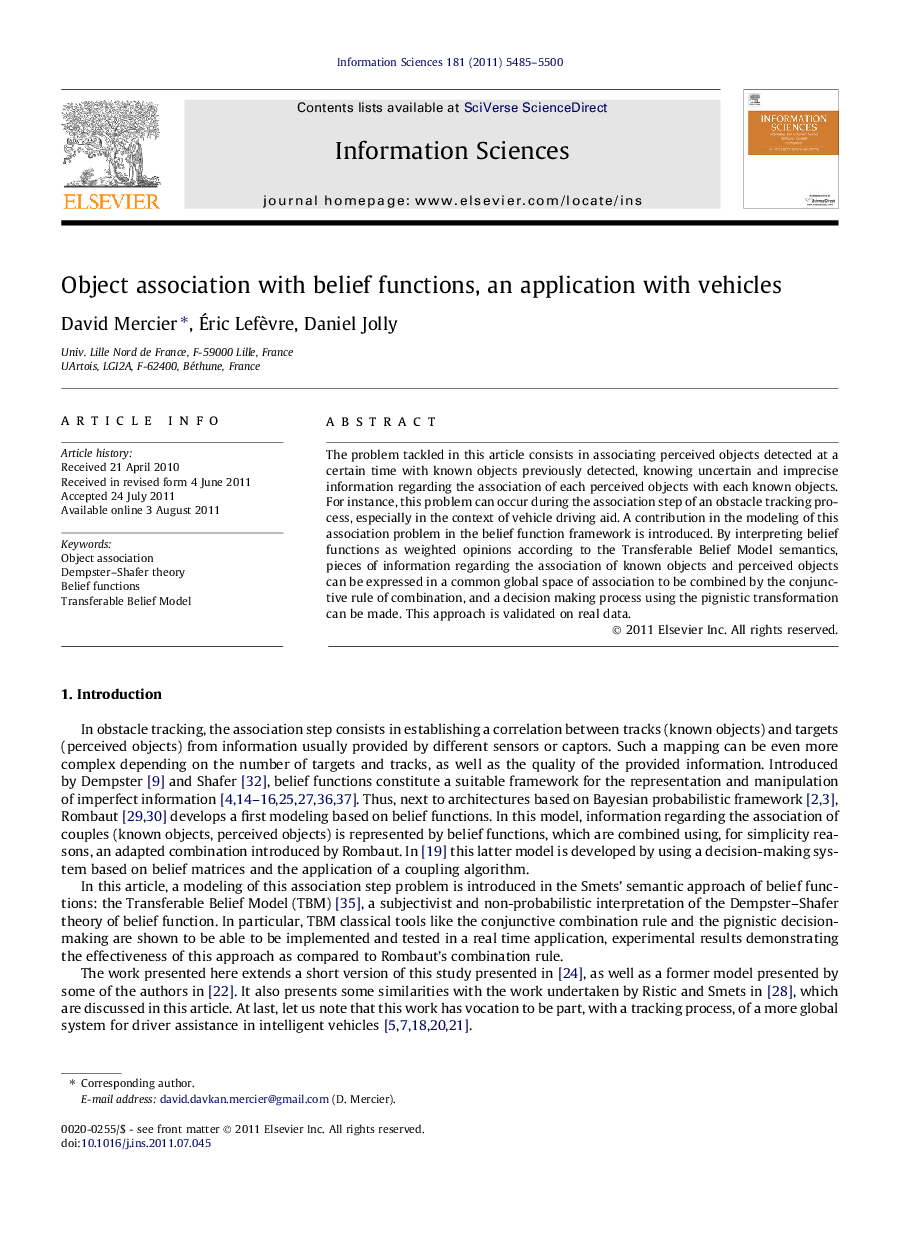| Article ID | Journal | Published Year | Pages | File Type |
|---|---|---|---|---|
| 393549 | Information Sciences | 2011 | 16 Pages |
The problem tackled in this article consists in associating perceived objects detected at a certain time with known objects previously detected, knowing uncertain and imprecise information regarding the association of each perceived objects with each known objects. For instance, this problem can occur during the association step of an obstacle tracking process, especially in the context of vehicle driving aid. A contribution in the modeling of this association problem in the belief function framework is introduced. By interpreting belief functions as weighted opinions according to the Transferable Belief Model semantics, pieces of information regarding the association of known objects and perceived objects can be expressed in a common global space of association to be combined by the conjunctive rule of combination, and a decision making process using the pignistic transformation can be made. This approach is validated on real data.
